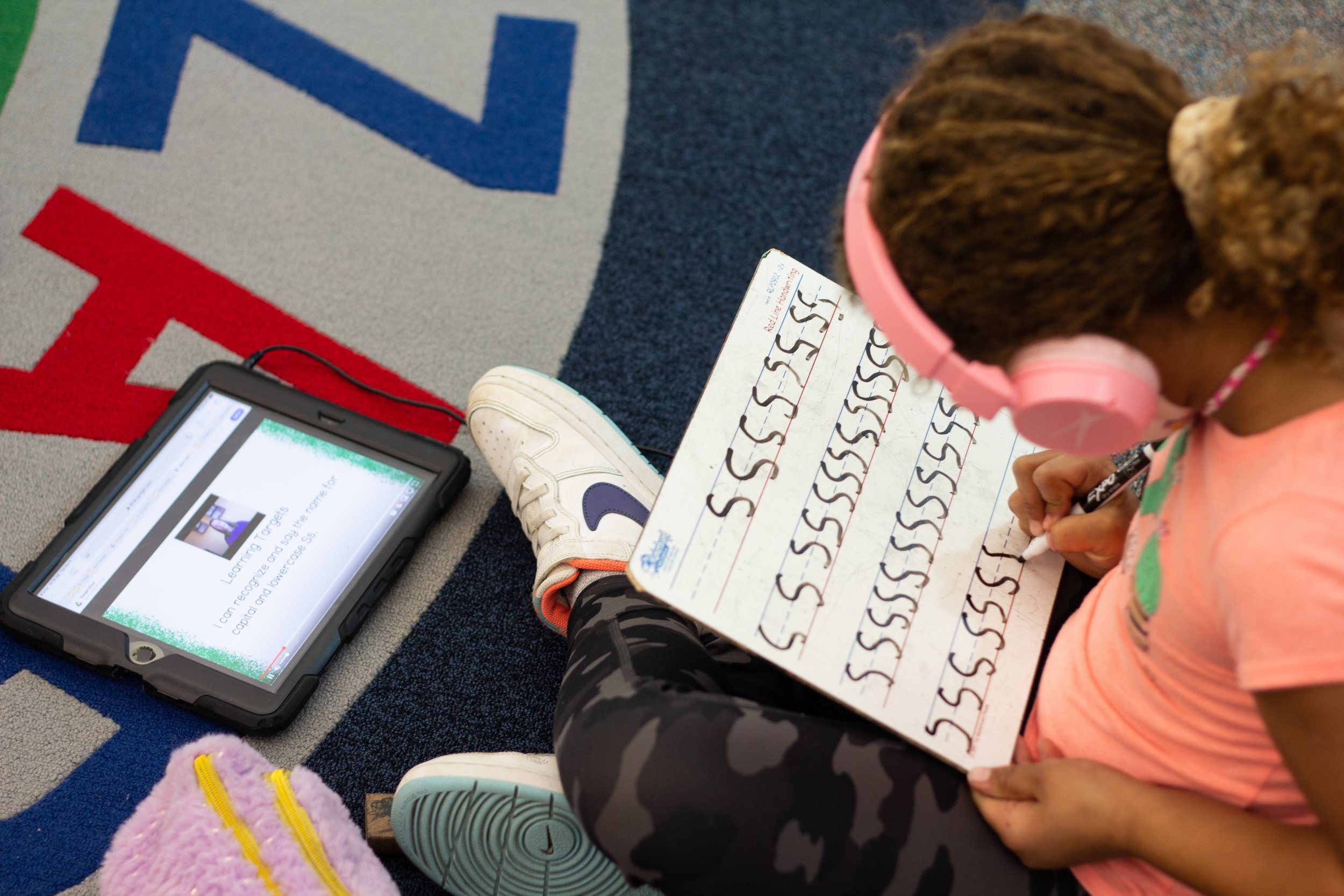Grading for Equity
Welcome to the Modern Classrooms Project Podcast. Each week we bring you discussions with educators on how they use blended, self-paced, and mastery-based learning to better serve their learners. In this episode, Toni Rose is joined by high school computer science teacher and grading disruptor, Megan Leich, to discuss what it means to grade for equity.
Educators and schools often have a lot to say regarding grading practices. Grades are undeniably important in a learner’s success, so how do we ensure that grades truly reflect the learner's skills? Megan talks us through what grading for equity could look like in the classroom and what grades can truly portray in a learning environment.
Grading for equity starts within ourselves
Megan realized that she started becoming increasingly unhappy with how she was using grades in her classroom. She knew that grades can be inflated or deflated depending on learners’ moods during testing among other factors that affect the grading environment. She started rethinking how she grades so that grading became a reward for growth, highlighting the learning journey. She also wanted to bring in opportunities for learners to reassess and revise and to focus more on feedback over grades.
As educators, Megan pushes for us to reflect on our grading beliefs. Isn’t it much better to decide to take that leap and reexamine our grading beliefs rather than have them dictated to us? We, as a society, believe that a grade is a reflection and a confirmation that we’re doing a good job. We want to start dismantling that mindset and shift toward a “grading for growth” mindset.
When educators go through this rethinking process, Megan suggests finding a thought partner that is trustworthy. Coming face-to-face with some of our outdated beliefs can be a rude awakening. Having a partner to help process is important. This is challenging work and we can’t do it alone.
Avoid common mistakes of grading for equity
The reality is that learners don’t really “master” something in grade school; it’s a lifetime of learning to master a skill or topic, so make sure to have a clear definition of mastery in your classroom, specifically being clear on what is being graded. Transparency is key here when it comes to grading.
Having a 4-point scale is easier to manage than a traditional 100-point grade. It’s hard to distinguish between an 85 and an 86. When a rigid grading policy is in place, start having a conversation with leadership about where there could be some space to create chunks rather than having all 100 points included in the grading. Megan acknowledges that giving a 50 for a task that was never turned in doesn’t feel right, so maybe using words rather than numbers will be more useful, like an ESRN scale.
Allow for revisions and reassessments. Perfectionism is something we’re trying to dismantle and having only one opportunity to show mastery is unfair and doesn’t reflect the learning journey. Even as adults, we struggle with doing something right the first time, and we learn more when we make mistakes and have an opportunity to redo them. For this to be effective, educators need to have clear guidelines on what revisions will look like in their classrooms, so it doesn’t weigh down both educators and learners. What do learners need to do to be able to revise? We need to normalize mistakes and failures so that we can all increase our confidence and learn more skills.
Know the difference between grading and assessing. Megan states that we’ve used these terms interchangeably, but there’s actually a difference. We want to assess daily through feedback and student check-ins, but grading doesn’t have to be done daily. Grading shows skill demonstration and should portray long-term growth.
Talk to learners about their grades and progress. Ask them for their thoughts, suggestions, ideas, and questions when it pertains to grading. Unfortunately, grading matters; however, we can show our learners how to make grading more meaningful and intentional.
So what does it really mean to grade for equity?
According to Megan, grading for equity means it accurately reflects learners’ skills and abilities, it’s bias-resistant, and it should be motivational and transparent. There is always room for growth when it comes to grading for equity.
Thank you to Megan for joining us on the podcast to share her beliefs, strategies, and experiences with grading for equity. If you want more ideas, listen to the whole episode.
Or, keep reading to learn more about grading for equity.
Our Host
Toni Rose taught MS English for 10 years and will forever identify as a teacher. Toni Rose strives to be the teacher that she never had growing up, so she focuses on anti-bias, anti-racist work and wants to create a brave space for everyone around her. As a queer Filipinx, she understands just how important it is to be represented, be valued, and belong. She especially loves being a thought partner for and celebrating teachers.
In her spare time, she likes to eat ice cream, take naps, force her two dogs to cuddle with her, travel, read on the beach and never get in the water, get matching tattoos, and cheer on all the strong women in her life. Sometimes, when she's in the mood, she'll run half-marathons, lift weights, and practice her arm balances.
Our Guest
Megan Leich is a HS Computer Science teacher and has done her research on grading for equity. She’s currently leading a PLC at her school on the topic. Megan is also a DMCE and an MCP mentor. She heard about Modern Classroom through word of mouth and decided to finally take the leap after hearing about it so much.
Email Megan at megan.leich@modernclassrooms.org.
If you like what you hear in this episode, share it with a friend or subscribe to get updates when new podcasts are published.






